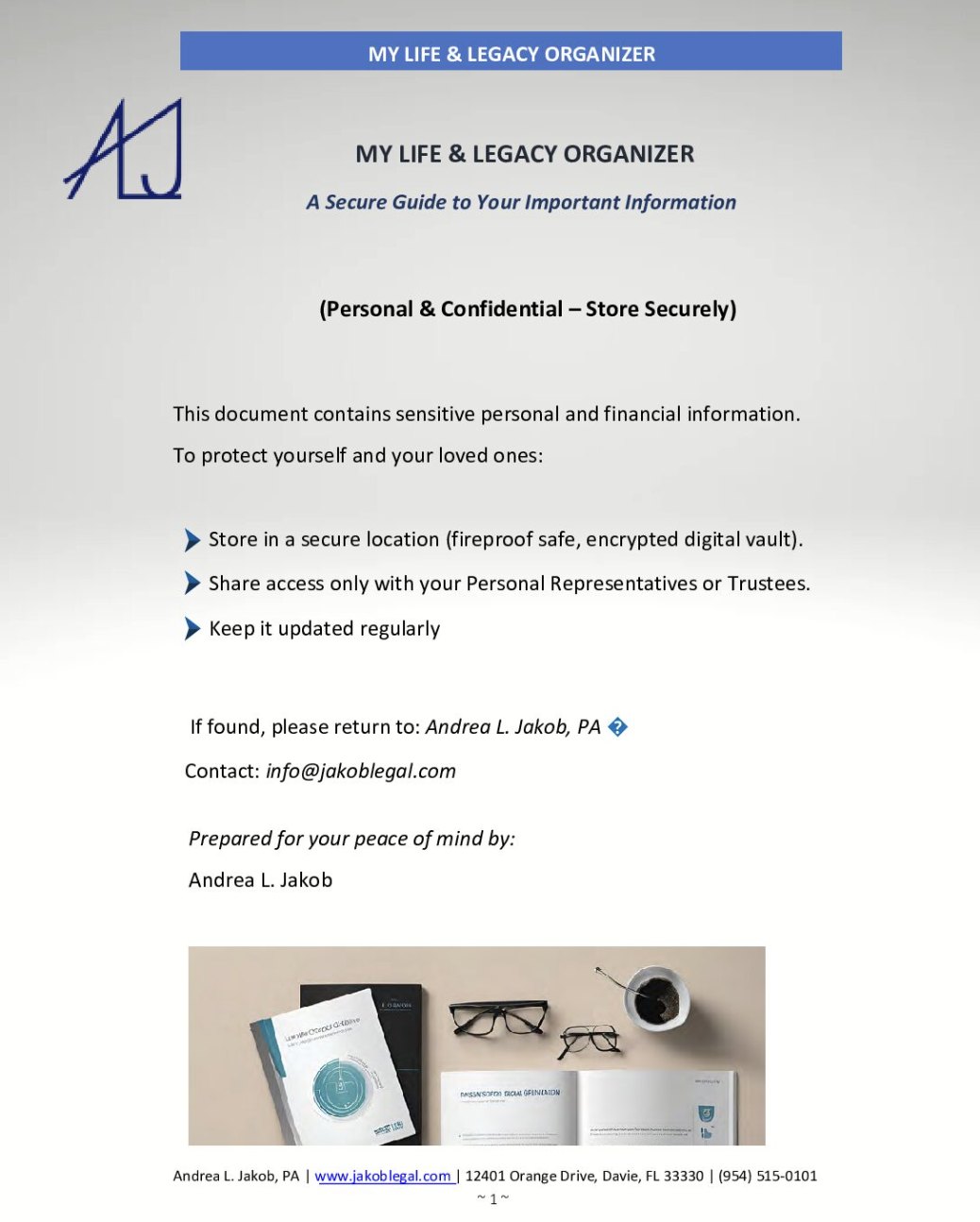What to do and When
As we (or our parents) get older, the best gift we can give the family is clarity. Here’s a simple, no-stress roadmap for what to do, when to do it, and when to bring in an estate planning/elder law attorney.
Start Now (Any Age)
- Talk about wishes: medical care preferences, housing, who should help with finances.
- Make a “Who to Call” list: doctors, pharmacy, insurance, financial advisor, attorney, key family.
- Create an “Emergency Folder”: ID, advance directive/healthcare surrogate, HIPAA release, durable financial power of attorney, will/trust, medication list, beneficiary designations, and a recent bank/insurance statement (account numbers hidden).
📝 Friendly note: Keep a copy at home and let one trusted person know where it is.
Ages 55–65: Set the Foundation
- Meet an estate planning attorney (Us!) to set up (or review) your will/trust, durable powers of attorney, and healthcare documents.
- Consider a revocable living trust to simplify later life transitions and avoid court delays.
- Review home title and beneficiary designations to match your plan.
- Long-term care planning: understand how you’d pay for help at home or in a community (savings, insurance, VA benefits, Medicaid planning strategies).
- Health & home baseline: safety check for the house (lighting, rugs, grab bars), baseline cognitive and hearing tests.
Ages 65–70: Tune-Up Time
- Medicare decisions at 65 (Parts A, B, D, and whether a supplemental/Advantage plan fits).
- Name your “Care Team”: primary and backup agents for finances and healthcare; give them copies of documents.
- Start the “what if I need help?” plan: preferred communities near family/friends, budget ranges, waitlists you may want to join early.

